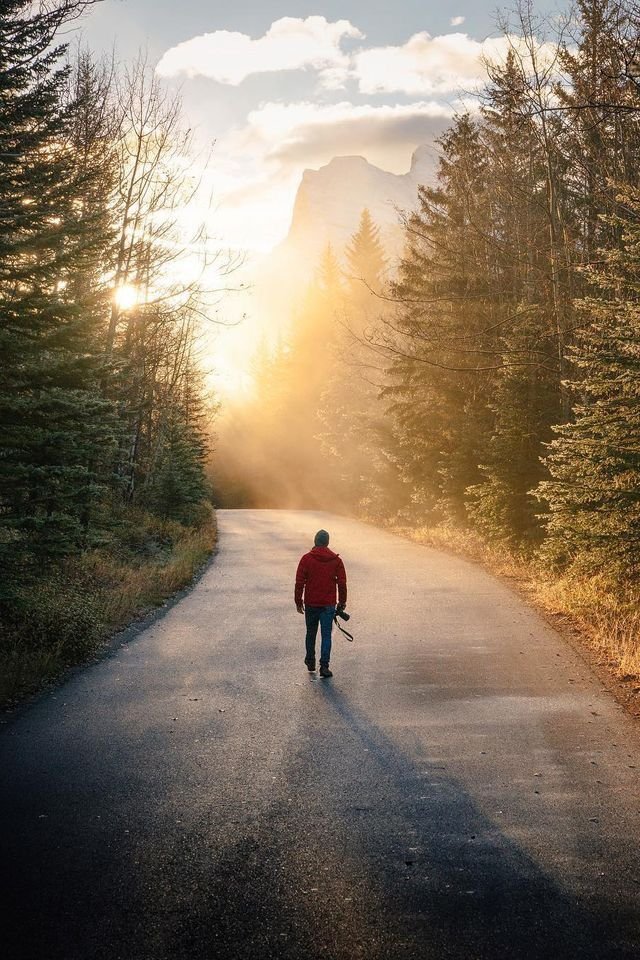When you first start traveling, the instinct is to dive in headfirst,taste everything, talk to everyone, snap photos of every street corner. But after a while, seasoned nomads learn a quieter, more valuable skill: the art of observation.
Becoming an observer isn’t about being passive. It’s about learning to see,to catch the details, rhythms, and truths that most tourists miss. For men who live the nomad lifestyle, this skill isn’t just cultural,it’s strategic.
1. Observation Builds Cultural Intelligence
Western culture often teaches quick judgment: fast opinions, instant reactions. Nomad life rewires that.When you spend enough time in a foreign city, sitting at a café and simply watching, you notice the unspoken rules,who sits where, how people greet one another, what gestures are polite or offensive.
In Buenos Aires, you might see that handshakes are rare; hugs and cheek kisses dominate. In Istanbul, you’ll notice business deals rarely start with the deal itself,they begin with tea, small talk, and relationship-building.
By observing first instead of charging in, you move with the current of a culture instead of swimming against it.
2. Observation Makes You a Better Judge of Character
Nomad life throws you into constant new social circles,expats, locals, travelers, hustlers. Some are genuine; others are looking to take advantage of you.
- The man who develops the observer’s mindset learns to read people without speaking.
- How someone looks at the waiter tells you more than how they talk to you.
- The friend who always “forgets his wallet” on group dinners? You’ll spot him early.
- The taxi driver who makes too much small talk about your hotel? That’s a signal to stay alert.
- Observation becomes your radar,it’s the quiet skill that can save you from scams, bad deals, or toxic relationships.
3. Observation Slows Down the Mind
Nomad life is fast,new countries, new languages, new currencies, new time zones. If you don’t build moments of stillness, your brain burns out.
Observation forces you to slow down. Instead of chasing the next Instagram shot, you focus on now. You notice the way the sunlight hits the old brick buildings in Porto, or how the smell of bread in a Moroccan souk changes as the day gets hotter.
This mindful awareness is more than poetic,it makes the entire lifestyle sustainable. Without it, nomads often burn out within months.
4. Observation Improves Adaptability
When you live in multiple countries, rules change constantly,sometimes in subtle ways. A smile may be a friendly gesture in one place and suspicious in another.
By watching before acting, you adapt faster. You know when to speak, when to listen, when to blend in, and when to stand out. That adaptability isn’t just about fitting in,it’s about survival, comfort, and influence.
5. Observation Strengthens Your Storytelling
Nomads aren’t just travelers; they’re collectors of stories. But the best stories aren’t always in the guidebooks,they’re in the little details.
The grandmother sweeping her doorstep at dawn in Oaxaca. The fisherman in Zanzibar who hums the same tune every morning. The bus driver in Manila who knows every passenger by name.
When you’ve trained yourself to truly see, you carry home stories that no AI-generated travel blog or package tour can replicate. They’re yours, because you earned them through presence.
Practical Ways to Become an Observer
- Sit alone in public spaces,without your phone,for 30 minutes. Watch how life unfolds.
- Keep a small notebook. Write one thing you noticed today that most people would miss.
- Change your pace. Walk slower than you usually do. Listen longer than you speak.
- Study patterns,where locals sit in a restaurant, how they cross the street, how they signal for help or attention.
Final Thought
Nomad life teaches you that power doesn’t always come from action. Sometimes it comes from stillness, from letting the world reveal itself before you make your move.
In a world obsessed with speaking, posting, and performing, becoming an observer is almost a superpower. It makes you wiser, sharper, and far more connected to the places you go,and the people you meet.













